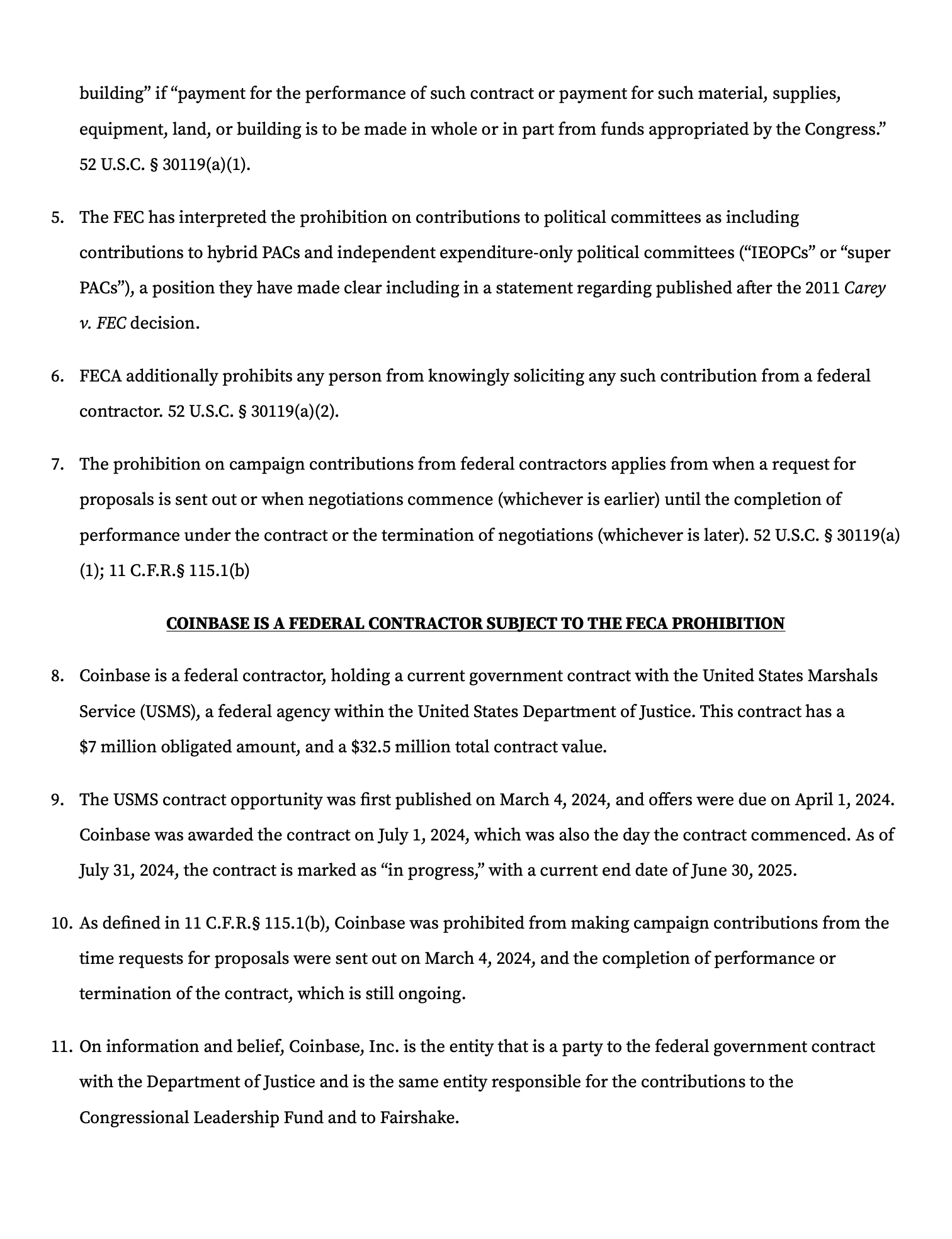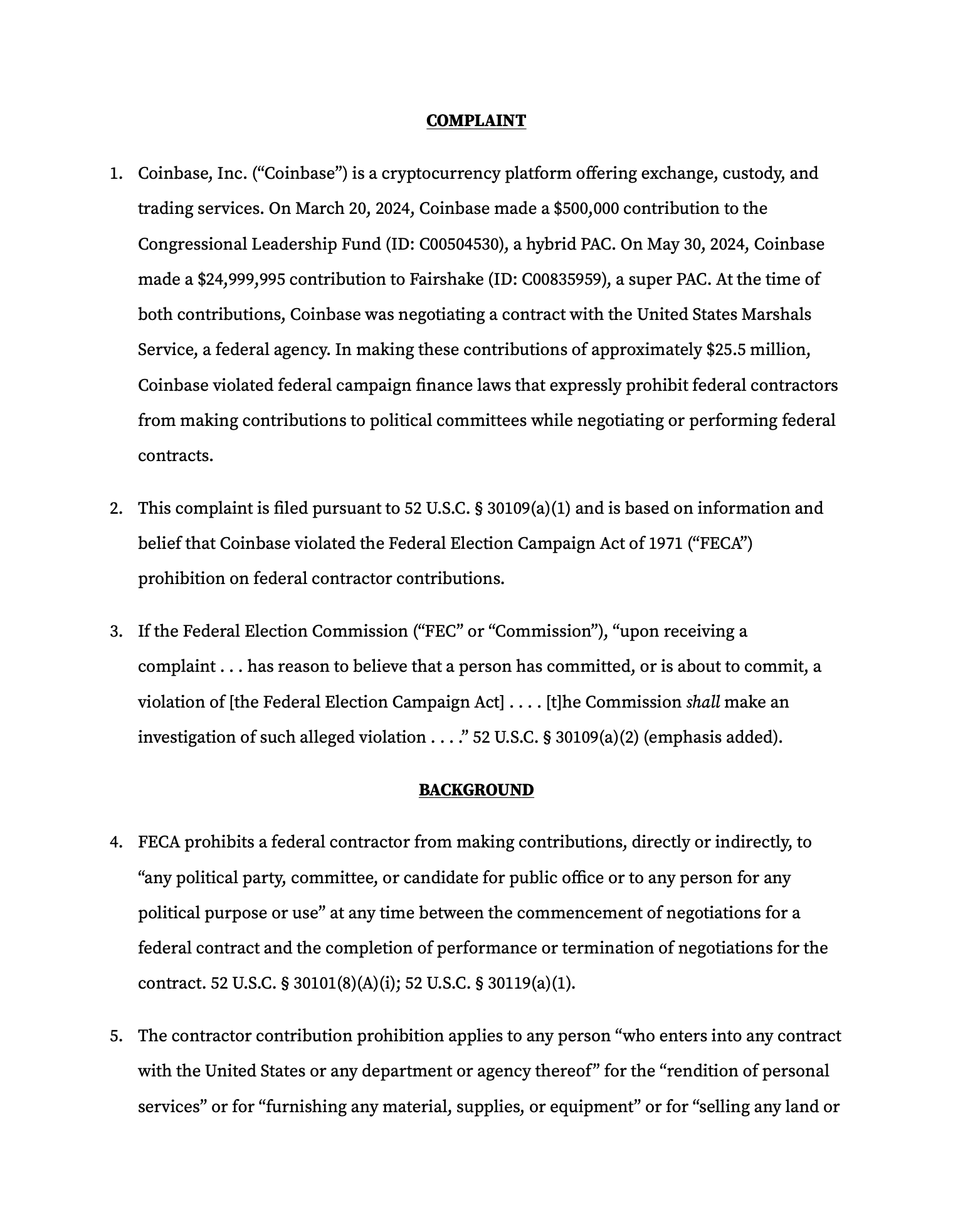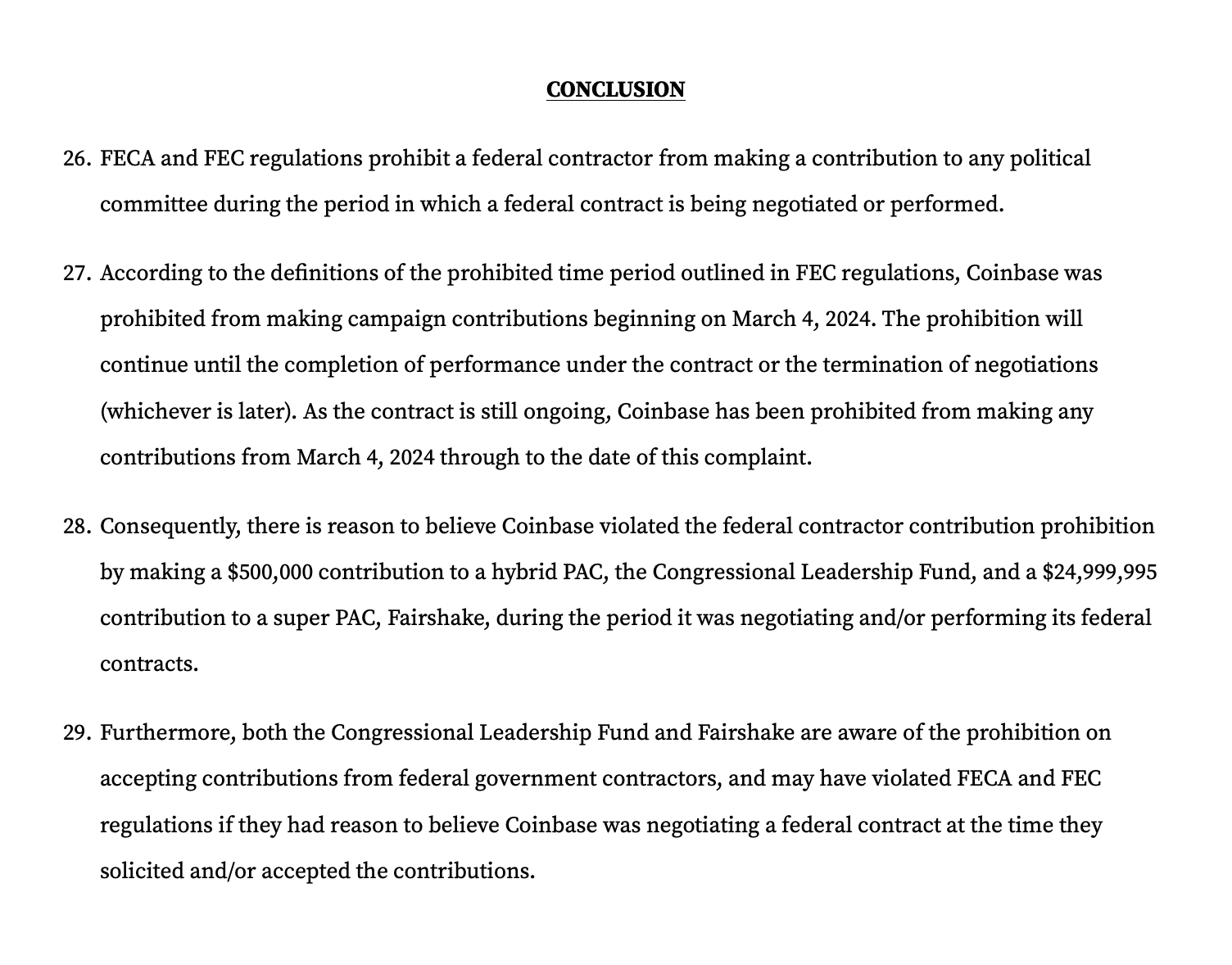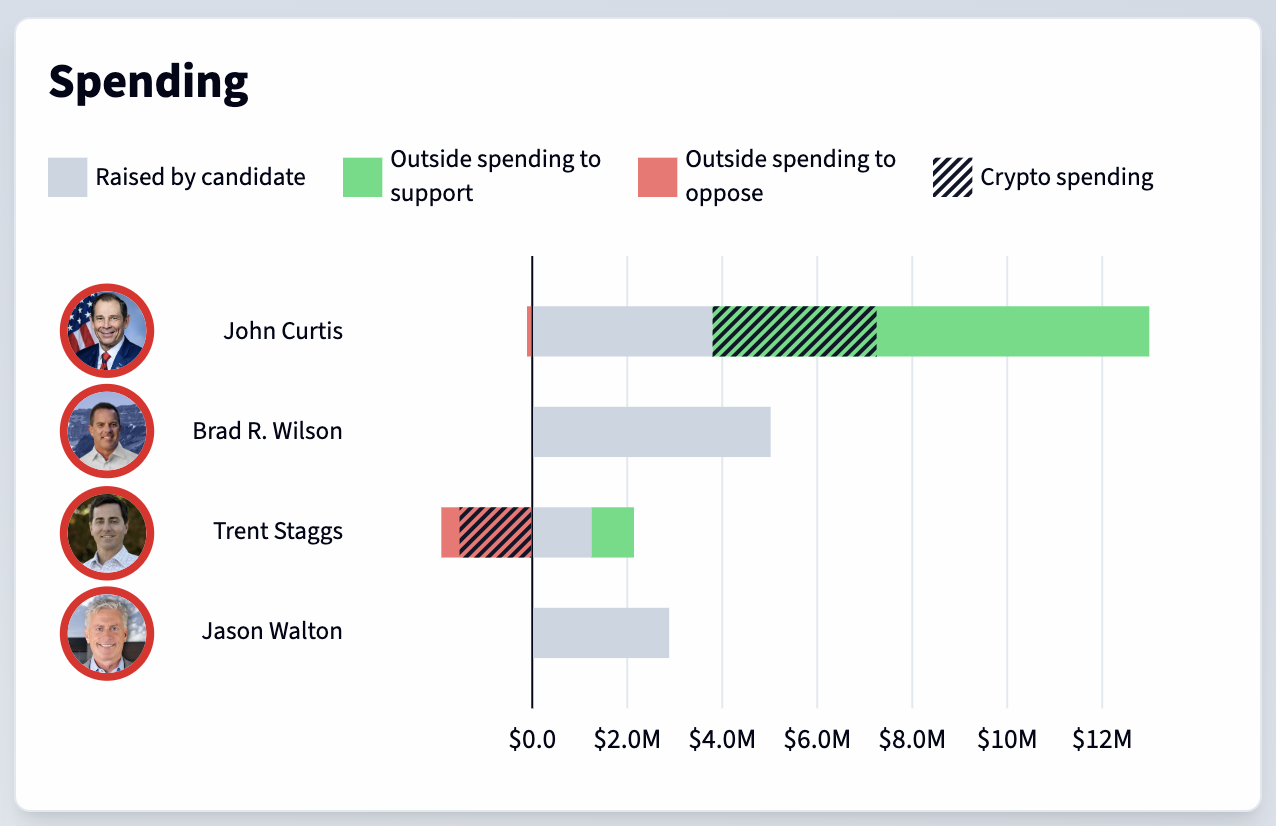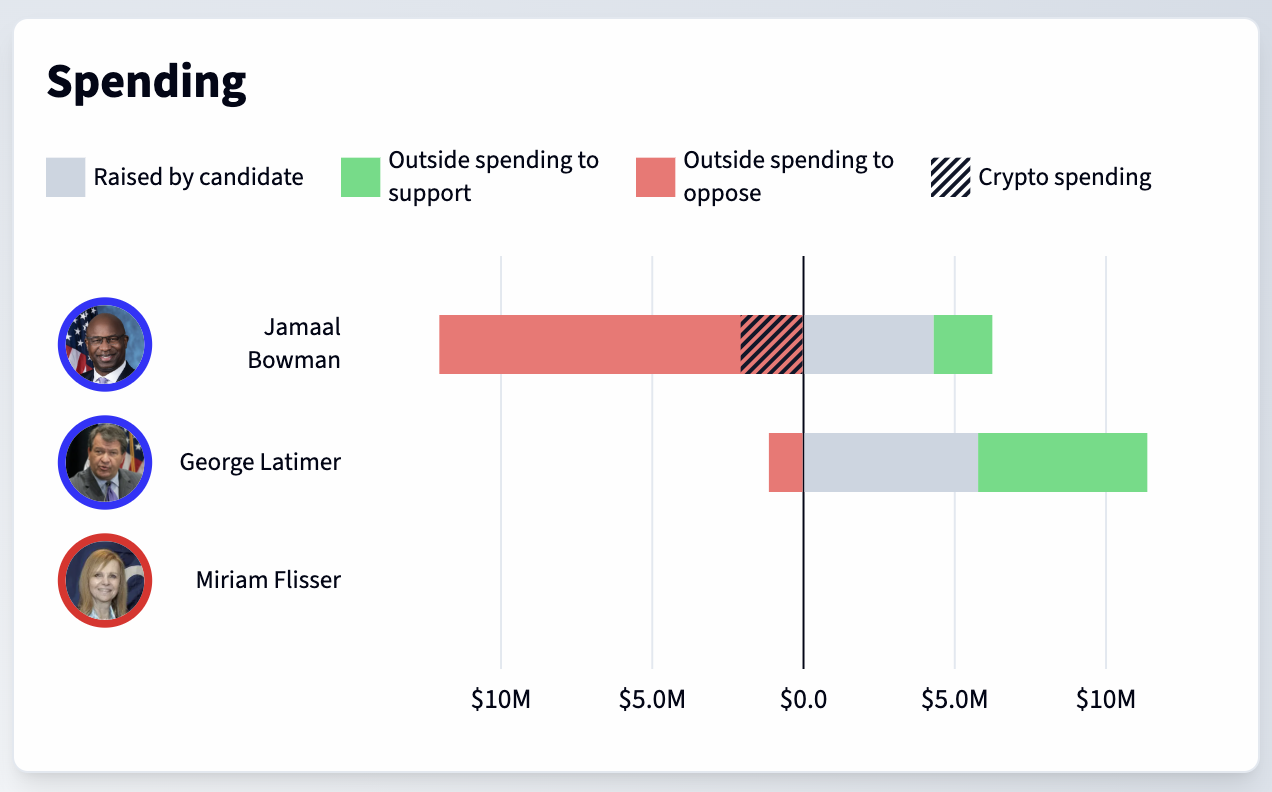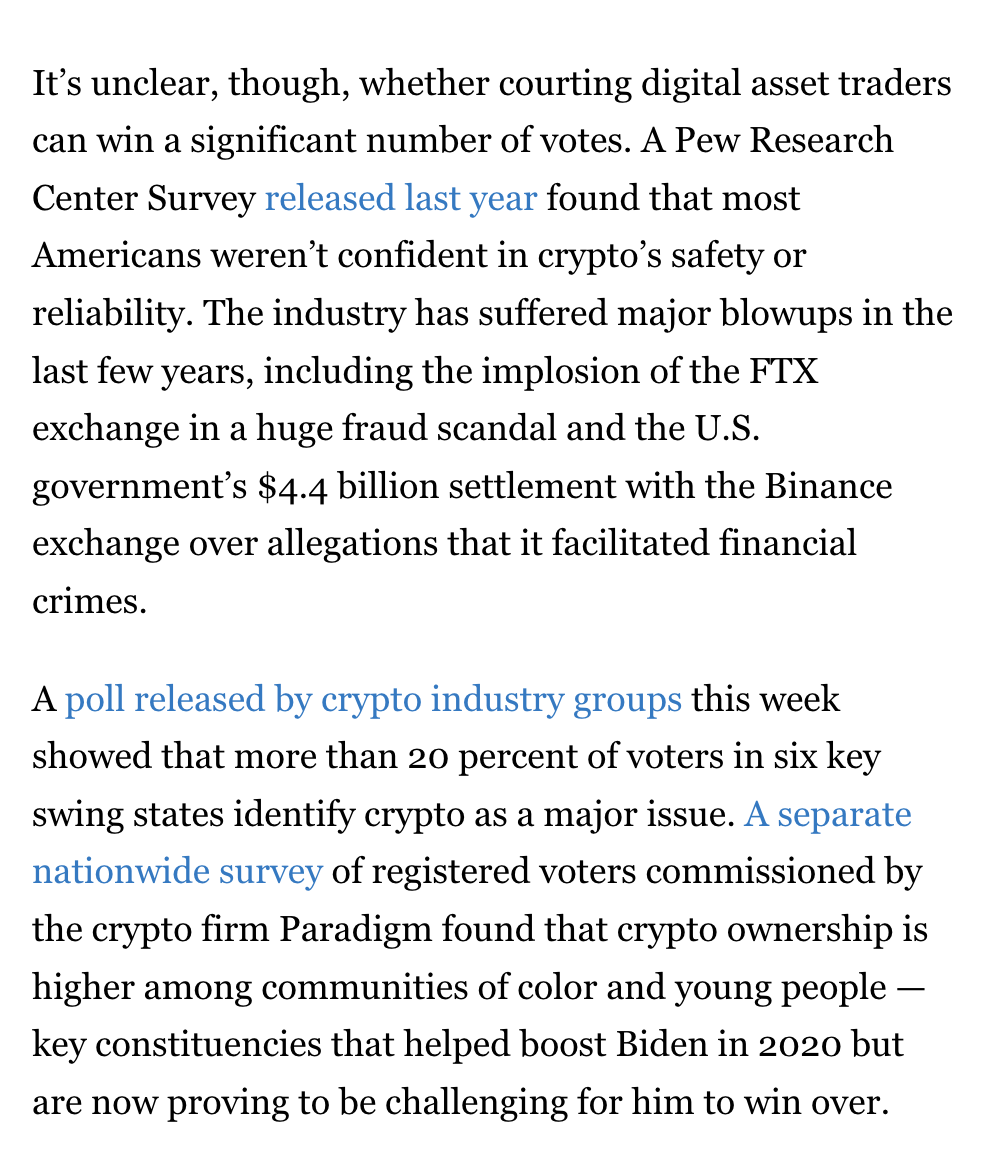The two candidates in today’s primaries that received substantial backing from cryptocurrency PACs both won their primaries.
1. John Curtis defeated Trent Staggs in the Republican Utah Senate primary, with the help of $1.7 million in crypto industry funding.
2. George Latimer defeated Jamaal Bowman in the Democratic primary for NY H-16, with the help of $2 million in crypto industry funding.
Ads run by these PACs made no mention of crypto or technology. In the NY race, ads from Fairshake seemed to align very closely with AIPAC’s aggressive campaign against Bowman, echoing their messaging accusing him of antisemitism.
“Defend American Jobs” was the PAC splashing out in the Utah race. They’re the Republican-focused crypto super PAC; “Protect Progress” is the Democrat counterpart.
Though Fairshake (nominally nonpartisan, and by far the highest fundraiser of the crypto PACs) previously made identical donations to both, they’ve just made another $5 million donation to Defend American Jobs without a corresponding donation to Protect Progress.
Defend American Jobs has raised $14.7 million so far this cycle; Protect Progress has raised $10.3 million.
Here's a glimpse at the spending in each race.
Other outside spending for Curtis mostly came from a super PAC called Conservative Values for Utah, with Defend American Jobs pitching in $5M last minute.
And as I mentioned, Bowman’s other opposition primarily came from AIPAC's UDP.


